Definition
Frozen shoulder is also referred to as adhesive capsulitis and is characterized by pain and loss of motion of the shoulder joint. The exact cause of it is unknown, even though it has been found to affect somewhere between two and five percent of people during their lifetime. Diabetes, thyroid disorder, a history of shoulder trauma, and periods of shoulder immobilization have been found to be risk factors that may lead to frozen shoulder. Females are also at higher risk. Occasionally, patients develop it after shoulder surgery or traumatic injury to the shoulder. Research suggests that the process is started with an inflammation of the lining of the joint within the shoulder. Gradually this area thickens and results in the shoulder becomes stiffer and more painful.
Frozen shoulder
Epidemiology
The prevalence of frozen shoulder is estimated to be 2 to 5 percent of the general population. The condition is most common in the fifth and sixth decades of life, with the peak age in the mid-50s. Onset before the age of 40 is rare. Women are more often affected than men. The non-dominant shoulder is slightly more likely to be affected. In 6 to 17 percent of patients, the other shoulder becomes affected within five years.
It occurs predominantly unilaterally and is usually self-limited, although evidence about prognosis is limited, and the course can be prolonged, in some cases lasting over two to three years. Some studies suggest that up to 40 percent of patients have persistent but mostly mild symptoms beyond three years, and 15 percent have long-term disability.
Risk factors of frozen shoulder
Some risk factors may play a role in increasing your risk of developing frozen shoulder. Some of them include:
Age and sex: People who are 40 and above, especially women have a greater risk of frozen shoulder.
Reduced mobility or immobility: Reduced or prolonged shoulder immobility may increase your risk of frozen shoulder. Some cases that may increase risk include a broken arm, stroke, rotator cuff injury and recovery post-surgery.
Systemic diseases: People with certain diseases such as diabetes, tuberculosis, hypothyroidism, hyperthyroidism, cardiovascular disease and Parkinson’s disease may have a greater risk of frozen shoulder.
Causes
The causes of frozen shoulder are not fully understood. There is no clear connection to arm dominance or occupation. A few factors may put you more at risk of developing frozen shoulder.
Diabetes: It occurs much more often in people with diabetes. The reason for this is not known. In addition, diabetic patients with frozen shoulder tend to have a greater degree of stiffness that continues for a long time before “thawing.”
Other diseases: Some additional medical problems associated with frozen shoulder include hypothyroidism, hyperthyroidism, Parkinson’s disease, and cardiac disease.
Immobilization: It can develop after a shoulder has been immobilized for a period of time due to surgery, a fracture, or another injury. Having patients move their shoulders soon after injury or surgery is one measure prescribed to prevent frozen shoulder.
Stages of frozen shoulder
It has three stages.
Painful stage: Pain is present most or all of the time. Sleeping is difficult and all movements aggravate the pain. Usually lasts three to six months, sometimes more.
Frozen stage: Pain lessens but shoulder continues to stiffen. Can last up to 12 months.
Recovery stage: Pain goes away and shoulder movements begin to come back. Can last up to 24 months.
Symptoms
Main symptoms are:
- Decreased motion of the shoulder
- Pain
- Stiffness
Frozen shoulder without any known cause starts with pain. This pain prevents you from moving your arm. This lack of movement can lead to stiffness and even less motion. Over time, you are not able to do movements such as reaching over your head or behind you.
Complications of frozen shoulder
Complications may include:
- Stiffness and pain continue even with therapy
- The arm can break if the shoulder is moved forcefully during surgery
Diagnosis and test
- A frozen shoulder can be reliably diagnosed by your doctor or physiotherapist by taking a history of your condition and by conducting a physical examination.
- The main feature on examination is increasing restriction of movement at the shoulder. This gradually progresses to involve all movements over a few months ( The freezing phase)
- X-rays and scans are not routinely required
Treatment and medications
A frozen shoulder will self-resolve in most cases. Treatment will depend on the stage of the condition and the levels of pain experienced. Initial management will focus on maintaining range of movement and strength.
Exercises: Exercises to help regain flexibility to the affected shoulder joint:
These are suggested exercises only. If you are at all concerned about whether these exercises are suitable for you or if you experience any pain while doing them, please seek appropriate clinical advice from your GP or Physiotherapist.
Using painkillers when needed: Over-the-counter analgesia is available through pharmacies when needed. Paracetamol is most commonly prescribed. Anti-inflammatories, such as Ibuprofen, are also used, but as there is little or no inflammation involved in osteoarthritis these are best avoided without discussing with your GP. Side effects are even more common than with paracetamol so please ensure to take appropriate medical advice. There is a good booklet on the Arthritis Research UK website with information about the various drug options.
Corticosteroid injection therapy:
The severe pain which can be a feature of frozen shoulder in stage 1 will often settle with no treatment. However, some individuals experience significant sleep disturbance and limited function. In these circumstances, a corticosteroid injection into the shoulder joint is an effective option to settle pain and expedite recovery.
Further treatment options
If the above treatments are ineffective, other treatments listed below can be considered:
- Hydro dilatation Procedure – Involves injecting the shoulder joint with a large volume of fluid (containing saline, steroid, and local anesthetic) to “stretch” the shoulder capsule.
- Capsular Release Surgery (keyhole surgery which releases the stiff areas of the shoulder joint capsule)
- Manipulation Under Anaesthetic (MUA) Surgery (Manual manipulation of the shoulder joint with the patient asleep)
The two surgical procedures above carry small risks and would be considered only when other treatment options have been exhausted.
Prevention of frozen shoulder
One of the most common causes of frozen shoulder is the immobility that may result in recovery from a shoulder injury, broken arm or a stroke. If you’ve had an injury that makes it difficult to move your shoulder, talk to your doctor about exercises you can do to maintain the range of motion in your shoulder joint.
 Diseases Treatments Dictionary This is complete solution to read all diseases treatments Which covers Prevention, Causes, Symptoms, Medical Terms, Drugs, Prescription, Natural Remedies with cures and Treatments. Most of the common diseases were listed in names, split with categories.
Diseases Treatments Dictionary This is complete solution to read all diseases treatments Which covers Prevention, Causes, Symptoms, Medical Terms, Drugs, Prescription, Natural Remedies with cures and Treatments. Most of the common diseases were listed in names, split with categories.

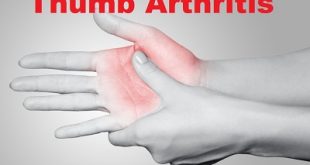
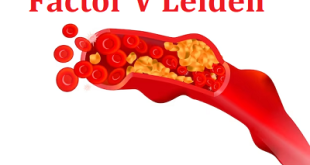

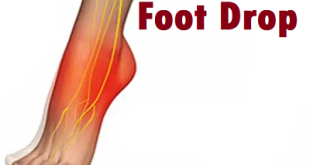
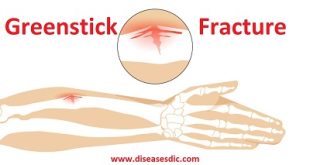
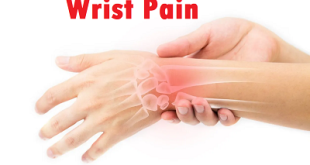

It’s my problem today due to over exposure to air-conditioning and the best remedy is reflexology with hot ointment.
I have experience this problem twice in my life and it was due to a surgery prosedure,but it got better have an injection
please sir give us details of glossitis management or treatment
Thank you very much for such invaluable information. I’m suffering from this Frozen Shoulder now.
Thanks a lot again.
V.V.Ludwaba
please I need detailed information on treatment of stroke. ischaemic and hemorrhagic. step to follow in the first 48hours
very soon we will update in upcoming posts. keep reading our post. thank you.
My wife & one of her three sisters both had f.s. at the ‘usual’ ages. Both are pure Cantonese. Racial differences in the medical complaint?
No it is not about racism but depend on the physical fitness.
Nice app… sir I need details about heart attack ..
Yes, there is a topic of heart diseases and heart attacks in the app please read it. For further queries just comment here.
I had A.C on both arms. left arm lasted for a year. then right arm lasted 6mths. got meds for right arm which was pain killer and steroids. did not help at all so I stopped. then one day at work I used a 3lb medicine ball. not sure if I would be able to but I did. threw it up and raised my arm with no problem. been better 4 years now. met a another coworker with same problem. she was taking meds and getting PT but no progress. so she tried the ball too and helped.
Sir thanks for the compliment
acctually I didn’t know about this sickness which I am being suffering at present moment with pain in my both L&R Arms but now I understand that I might be causing by Frezon longing for more than two weeks and I haven’t prescribe any physician regarding my sickness please let me request you to give your valuable support for the treatment as well
please consult a doctor.
Which tablet for using shoulder pain
Aspercreme, Ben-Gay, Capzasin-P, Eucalyptamint, Icy Hot, Voltaren Gel and Zostrix.
Where do you get this medicine ball I would like to try this to see if it would help my shoulder. the work I do at my job has me using my arms alot lifting above my head which makes my shoulder hurt worse
You can get through online shopping sites and also in some sports shop.
Thank you so much about this diagnosis. I have been suffering from this for almost six months now. It is soo painful l cant sleep on that arm bcoz of the pain. l cannot raise my arm above my head at all.
l m happy now l know it has a name. Thank you.
I had dislocated my shoulder when I picked up my hand to slap the person how did it happend Why my joints are weak and my shoulder bone came till the rib cage it was too much
Please consult a doctor.
I thought I may have this but now not sure. I have pain all the time in my shoulder blade area. Plus around the collar bone, The pain will run from the top of the shoulder down to my elbow. fingers will go numb.
Please consult a doctor.
I have a serious pain on my left shoulder that makes me not to be able to sleep every night,I consulted and being prescribed but even now the pain still persists.It is now more than 3 months pls help I can’t live with medication
Do physiotherapy frequently, as well as consult a doctor to get rid of this problem.
I have pain from my shoulder rotation but whenever i sleep I feel like pain from from joints of shoulder rotation so please help me
Please consult an orthopedic doctor.
I have shoulder pain for8 months Dr suggested belt 3 kinds of belts excise it helps a lot but not 100% ,prescribed evion tablets I have numbness in hands also please suggests
better medicines & excise
Please once again consult a doctor to get rid of these side effects.